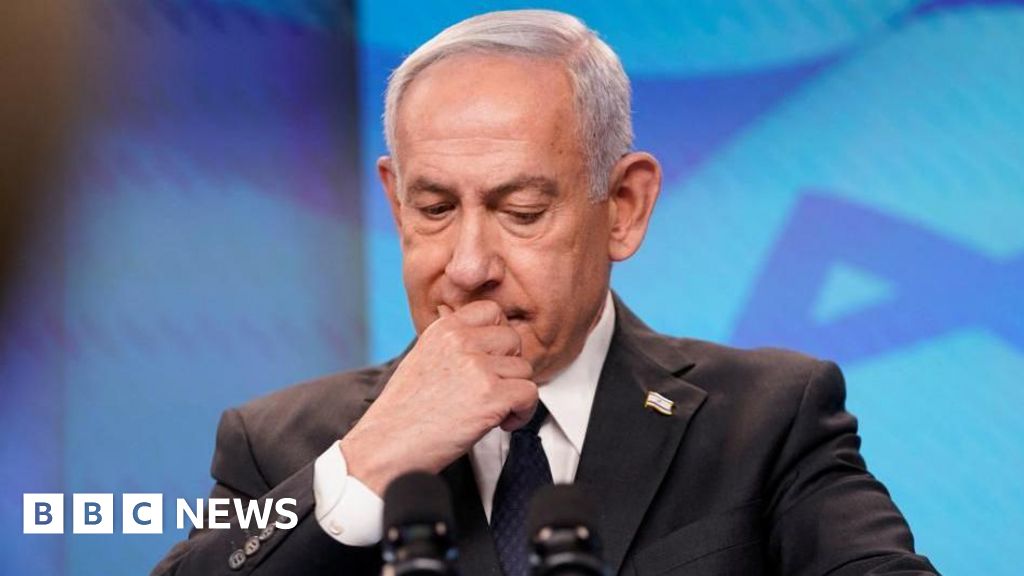
Does Israel face a 'South Africa moment' over Gaza?

Does Israel Face a ‘South Africa Moment’ Over Gaza?
As the conflict in Gaza continues, Israel finds itself increasingly isolated on the international stage. The ongoing violence and humanitarian crisis have raised questions about whether Israel is approaching a “South Africa moment” — a time when a combination of political, economic, and cultural pressures led to the end of apartheid in South Africa. This article explores the current diplomatic landscape for Israel under Prime Minister Benjamin Netanyahu and the implications of growing international discontent.
Growing International Isolation
The situation in Gaza has drawn widespread condemnation from various nations, leading to a notable shift in Israel’s diplomatic relations. Former Israeli Prime Ministers Ehud Barak and Ehud Olmert have criticized Netanyahu’s government for transforming Israel into an international pariah. The issuance of a warrant by the International Criminal Court has further complicated Netanyahu’s ability to travel, significantly limiting the countries he can visit without the risk of arrest.
In a significant development, several countries, including Britain, France, Australia, Belgium, and Canada, have announced plans to recognize Palestine as a state. This move reflects a growing frustration with Israel’s military actions in Gaza, particularly following an Israeli strike that targeted Hamas leaders in Qatar.
Sanctions and Boycotts
The international response has included a series of sanctions and boycotts against Israel. Belgium recently introduced measures that include banning imports from illegal Jewish settlements in the West Bank and imposing restrictions on consular assistance for Belgians living in those areas. Additionally, two hardline Israeli ministers, Itamar Ben-Gvir and Bezalel Smotrich, have been declared persona non grata in Belgium due to their actions against Palestinians.
Spain has followed suit, transforming its de facto arms embargo into law and prohibiting entry for individuals involved in war crimes in Gaza. The Spanish government has also banned Israeli ships and aircraft carrying weapons from accessing its ports and airspace. In response, Israel’s Foreign Minister Gideon Saar accused Spain of advancing antisemitic policies.
Norway’s sovereign wealth fund, valued at $2 trillion, has begun divesting from companies listed in Israel, with 23 companies already removed from its portfolio. This decision reflects a broader trend among European nations, as the European Union plans to sanction far-right Israeli ministers and partially suspend trade elements of its association agreement with Israel.
Cultural and Sporting Boycotts
In addition to economic sanctions, cultural and sporting boycotts against Israel are starting to materialize. The Eurovision Song Contest, in which Israel has participated since 1973 and has won four times, faces potential boycotts from countries like Ireland, Spain, the Netherlands, and Slovenia if Israel is allowed to compete in the upcoming 2026 event.
In Hollywood, a petition advocating for a boycott of Israeli production companies has garnered over 4,000 signatures, including endorsements from well-known actors such as Emma Stone and Javier Bardem. The Israeli Film and TV Producers Association criticized the petition, arguing that it undermines dialogue and diverse narratives.
On the sports front, the Vuelta de Espana cycling race was marred by protests against the Israel-Premier Tech team, leading to disruptions and the cancellation of the podium ceremony. Additionally, seven Israeli chess players withdrew from a tournament in Spain after being informed they could not compete under their national flag.
Israeli Government Response
The Israeli government’s response to this wave of international criticism has been largely defiant. Netanyahu condemned Spain’s actions as a “blatant genocidal threat,” and Saar expressed regret over the sanctions, claiming they stem from an anti-Israeli obsession.
However, former diplomats express concern over Israel’s deteriorating international standing. Jeremy Issacharoff, Israel’s ambassador to Germany from 2017 to 2021, noted that Israel’s reputation has never been more impaired. He cautioned that measures targeting all Israelis, rather than just the government, could alienate moderate citizens.
Ilan Baruch, another former diplomat who resigned in protest of Israel’s policies, stated that while recent sanctions are necessary, they echo the pressures that led to South Africa’s downfall. He believes that assertive pressure from the international community is essential to restore Israel’s standing among nations.
The Future of Israel’s Diplomatic Relations
Despite the growing pressure, some observers argue that Israel’s diplomatic isolation is not yet irreversible. Daniel Levy, a former Israeli peace negotiator, noted that while the situation is concerning, many European countries are hesitant to take drastic collective actions against Israel. Countries such as Germany, Italy, and Hungary have resisted measures that could significantly alter Israel’s trade relations.
The United States continues to support Israel, with Secretary of State Marco Rubio affirming that the U.S.-Israel relationship remains strong. This backing may provide Netanyahu with some leeway, even as calls for change grow louder.
In conclusion, while Israel faces increasing international scrutiny and pressure reminiscent of South Africa’s apartheid era, the extent to which this will lead to significant changes in policy or diplomatic relations remains uncertain. The situation in Gaza continues to evolve, and with it, the dynamics of Israel’s standing in the world.
Key Facts
– Israel’s international isolation is deepening amid the ongoing conflict in Gaza.
– Former Prime Ministers Ehud Barak and Ehud Olmert have criticized Netanyahu’s government for its handling of the situation.
– Several countries are planning to recognize Palestine as a state, reflecting increasing frustration with Israel.
– Belgium and Spain have implemented sanctions against Israel, including bans on imports from illegal settlements.
– Cultural and sporting boycotts against Israel are emerging, with potential withdrawals from events like Eurovision.
– The Israeli government has responded defiantly to international criticism, but former diplomats express concern over Israel’s reputation.
– The U.S. continues to support Israel, complicating the potential for significant diplomatic changes.
Source: www.bbc.com
